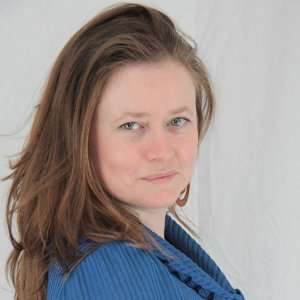Peter Maxwell Davies had curated the programme for this Proms Saturday Matinee, and took to the stage to introduce all three works. It was good to see him looking in good health after his battle with leukemia over the past year, and to hear him provide insight into the selection of works that spanned a career that has encompassed a variety of styles.
First was Linguae ignis, the most recent of the works. Translating as “Tongues of Fire”, the work takes two Pentecostal plainchants, Dum complerentur and Veni Creator Spiritus, and transforms the former into the latter. Its elegiac quality was beautifully brought out by solo cellist Tim Gill from the very beginning. After creating an intimate, mystical and impassioned soundscape, Sian Edwards built the orchestra up to a tense, jazzy section, full of the titular fire. Then mournful calm descended, a warped Veni Creator Spiritus creating a sense of jarring familiarity before fading away into nothing.
The main body of the concert was taken up with early work Revelation and Fall, a setting of Georg Trakl’s poem. Maxwell Davies had been given a book of Trakl’s poetry as a birthday gift, and found himself immediately inspired by its “urgency and delirious expression”. The resulting work is a fiendish challenge for both ensemble and soprano soloist, in this case Rebecca Bottone. It is a testament to the mastery of both Edwards and Bottone that this was a performance both beautifully controlled, and indeed urgently delirious. The music went from dark and brooding, to harsh rage, opiated jazz and utter madness, all approached with complete commitment, not just to the technical challenges, but to the emotional ones too.
If there were any minor fault, it was only that Bottone’s emotional engagement didn’t quite match that of the ensemble, however, given the extreme technical demands of the piece on the soprano (singing through loudhailer, Sprechgesang, leaping melismatic lines) this is only a very minor quibble. Maxwell Davies’s music peered into Trakl’s drug-addled mind (the poet began taking drugs in his teens, and died of a cocaine overdose at the age of 27), and Bottone and London Sinfonietta fearlessly followed him down the rabbit hole.
Closing out the concert was A Mirror of Whitening Light, written for London Sinfonietta in 1977. Maxwell Davies sought to create in music the shimmering light reflections from the Orkney bay of his home. This light has an alchemical quality to Maxwell Davies, and the title is taken from a book on the subject by Jung. From the beginning, there was a real sense of the London Sinfonietta reaching in to something, even as they created a shimmering soundscape of blistering clarity. A myriad of ideas were presented in glorious cohesion, thanks again to the skill of Sian Edwards. It was clear not just in this work but throughout the concert that she is utterly connected with both her score and her orchestra at all times, never losing focus. The refinement process of alchemy was clear from both the music and the performance, although the music itself perhaps didn’t quite have enough to sustain the process over the span of the piece. The climactic moments, however, were ferocious, and once reached, the London Sinfonietta sank delicately from the heights down to the murky depths of the sea bed.
London Sinfonietta’s commitment to contemporary repertoire continues to pay off; where other ensembles focus heavily on meeting the technical challenges, “getting it right”, London Sinfonietta go much further, getting to the heart of the music. Their celebration of Peter Maxwell Davies was mesmerising. May there be many more.




